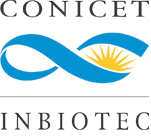Algal Research, Volume 43, November 2019, 101652, 2019
Highlights
- Nutrients in vinasse were recycled and upgraded as cyanobacterial biomass.
- Biological nitrogen fixation and bone meal as sources of N and P, respectively
- Production of cyanobacterial exopolysaccharides
- A cyanobacteria-based organic fertilizer substituted for urea as a plant fertilizer
- Cyanobacterial biomass improved plant growth under drought stress.
Abstract
Increasing production of N-fertilizers is mandatory to support the expected demand of food over the next decades. While reduced access to N-fertilizers compromises food security in some regions of the world, incorrect management in other regions causes detrimental effects on the environment. Biological N2-fixation is a natural process for N-fertilization of plants in natural environments which could only be partially exploited in intensive agriculture. This is mainly because the current technology of crop inoculation with live microorganisms is often constrained by the inoculant’s survival and propagation in the agricultural environment.
In this study, we pursued a controlled eutrophication approach to recycling nutrients from agro-industrial runoffs for the production of an organic fertilizer and soil conditioner. Biomass of a N2-fixing cyanobacterium was obtained using a P-enriched fermentation vinasse as a sole source of macronutrients. The cyanobacterial biomass substituted for urea in wheat growth in artificial semi-arid soil, especially when sporadic watered simulating a semi-arid rainfall regime. Comparative analyses suggested a higher persistence of the organic fertilizer in the soil than an equivalent amount of urea.
This study advocates the convenience of concentrating nutrients from industrial wastewater into biomass of N2-fixing cyanobacteria for their re-use in crop fertilization. It discusses the advantages of separating biological fertilizer production from crop cultivation in order to circumvent the odds of the microorganisms’ acclimation to the agronomic conditions, and the techno-economic challenges towards maturation of the proposed technology.
keywords
Vinassem Biological N2-fixation, Organic fertilizer, Drought, Soil conditioner
Graphical abstract
